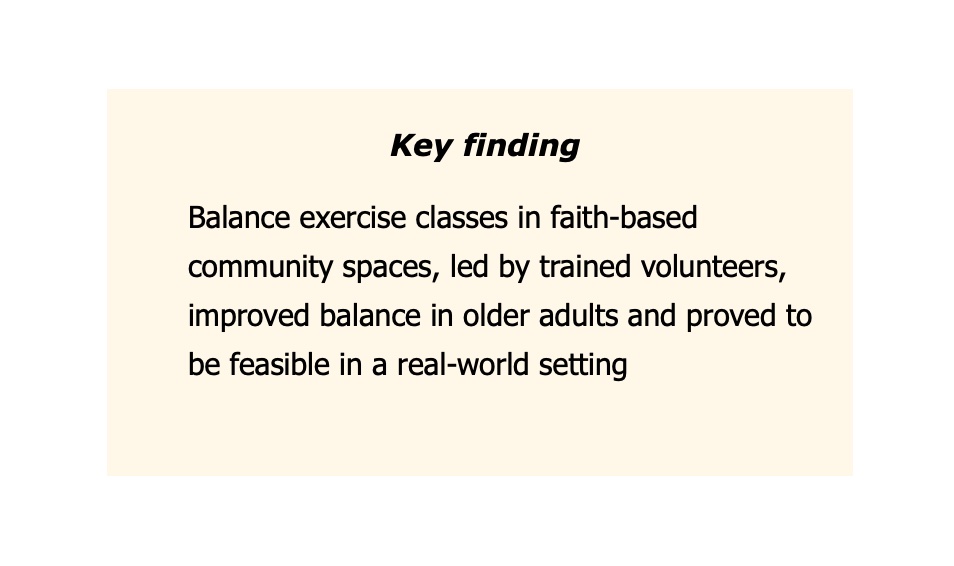Improving balance in community-dwelling elders using trained volunteers within faith-base institutions: a mixed methods feasibility study
Sheeba Rosewilliam, Colin J. Greaves, Arokkiyasamy Selvanayagam & Andrew A. Soundy
School of Sports, Exercise and Rehabilitation Sciences, University of Birmingham, Birmingham, UK; Dizzy care clinic ltd, Wolverhampton, UK
This study explored whether trained volunteers in churches and other faith-based institutions could help improve balance in older adults living in the community. The researchers wanted to see if this approach was practical and effective.
The study involved a mix of different research methods, including surveys, interviews, and balance tests. Volunteers from churches were trained to lead balance exercises with older adults. The researchers then measured the progress of these participants to see if their balance improved over time.
The results showed that this approach was feasible—meaning it worked well in a real-world setting. The older adults who participated found the balance exercises helpful, and many experienced improvements in their ability to stay steady and avoid falls. The study also highlighted the benefits of using trusted community spaces like churches to support the health and well-being of older adults.
Overall, this research suggests that trained volunteers in faith-based institutions can play an important role in helping older adults maintain their balance and reduce the risk of falls, making it a promising approach for community health programs.

